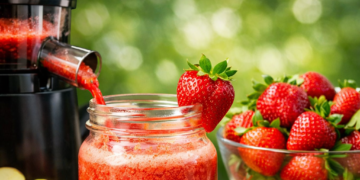When we talk about food cravings, like tuna cravings, I admit they’re unique and fascinating. We’ve all had cravings for certain foods or drinks, and these vary from person to person. A person’s cravings depend on how the body tells the brain, or the signals it sends. Okay, back to our topic: Why Am I Craving Tuna? Let’s dive deeper and find this incredible answer.
Perhaps you’ve had a craving for delicious tuna dishes or dishes, or a unique tuna sandwich. This is normal, and what we need to know now is why you crave tuna, or other times you crave corn or crab. There’s a reason for everything. Let’s take a look at what causes tuna cravings. If you’re looking for the answer, I hope this is helpful!
Why Am I Craving Tuna?
Cravings don’t have to be for sweets or junk food. They can also occur for various types of foods, including nutritious foods. For example, if you crave nutrient-rich tuna, this is unique and strange, but it can all be explained scientifically. I love exploring strange things like this, so I present the answer for you all. [eatingwell]
Craving tuna isn’t a simple matter. The reasons behind it can include the benefits of consuming tuna, emotional comfort, and of course, there’s a lot to discuss about this tuna craving. Let’s explore!
Sometimes I wonder why so many people crave tuna. Is it because of its savory, delicious taste, or its rich nutrients, or is there some mystery behind it? Okay, if you’ve finished this article, I hope you understand why you crave tuna. When your friends or family tell you they crave tuna, you won’t be surprised anymore and will already know some of the possible reasons behind it.
Cravings often occur during pregnancy, and this is both normal and unique because what pregnant women crave can sometimes be irrational, but this is what’s amazing. Let’s dive into cravings, specifically tuna cravings.
Let’s see why I’m Craving Tuna
We’ll dive into the deep ocean for the diverse and delicious tuna. Its taste, nutrition, and price are truly extraordinary. Tuna is a treasure trove because its deliciousness makes it so expensive. But there’s something even more valuable that we’ll explain here: “Why am I craving tuna?”
The 7 Reasons Why People Crave Tuna
1. Nutritional Deficiencies
The body knows its condition and needs better. When you crave tuna, it could be a signal from your body to get essential nutrients from tuna. Tuna is known to be rich in omega-3 fatty acids, selenium, high-quality protein, and Vitamin D. You’re probably already aware that when your body is deficient in one of these nutrients, it stimulates your appetite to consume tuna dishes like tuna salad and others.
2. Omega-3 Fatty Acids
This is an important nutrient for the brain and mood. So, when you’re feeling moody or your brain is foggy, like you can’t think clearly, one reason is that your omega-3 needs aren’t being met. If this is the case, your body immediately signals your brain to use tuna as a source of nutrition, as this fish is a good source of omega-3.
So, some time ago, when I was feeling down or unwell, I looked for this fish to cook as a side dish for lunch. I already knew about the benefits and nutrients of tuna. By consuming it in reasonable portions, I hoped my mood would improve and I would feel more comfortable with my condition.
3. Changes in Diet
When you change your diet due to a certain diet, you might crave other foods you haven’t eaten before. It’s strange, isn’t it? But here are some facts! If you’re on a low-carb diet or a keto diet, your body will usually signal you to eat protein-rich foods like tuna.
Well, this is our body’s way of balancing itself. So, you don’t need to worry about your cravings; what you need to pay attention to is portion size. Even if you’re craving tuna, limit your consumption to maximize its benefits.
4. Emotional Eating Factor
When we’re stressed or emotionally challenged, we often reach for comfort foods. Tuna is one of those delicious and comforting foods, like a warm casserole or a comforting sandwich. These foods can affect our emotions to some extent.
Emotional factors can also stem from having consumed tuna in the past during a specific event. Later, when we experience the same event again, we’ll sometimes be reminded of the food we ate at that time. Our emotional turmoil arises, and our brain immediately tells us to eat tuna (for example).
Another example: Since elementary school, I’ve often eaten boiled peanuts, but when I studied abroad, I stopped eating them. Certain moments reminded me of my childhood, and I craved boiled peanuts, just like in elementary school.
5. Pregnancy-Related Cravings
It’s undeniable that all pregnant women experience cravings, but they vary. Some people sometimes crave tuna. During pregnancy, in addition to the body’s nutritional needs, tuna cravings are also influenced by hormonal changes that alter taste and smell preferences. This can sometimes make you want to eat something different or unusual.
The excellent nutritional profile and luxurious taste make tuna a frequent food craving for pregnant women. This is usually due to these hormonal changes. However, there are certainly many explanations for craving tuna during the pregnancy period, and we will discuss this in more depth later.
6. Personal Taste and Texture Preferences
Tuna cravings can also be driven by tuna’s texture and taste. For example, the soft, buttery texture of tuna steak and its versatility play a role in cravings. When tuna matches your cravings, your cravings will immediately arise.
7. External Influences
There’s another unique reason; this is an external factor that influences. For example, you’ve just seen an advertisement on TV for a delicious tuna recipe, seen advertisements in restaurants, or read an article about the benefits and nutritional value of tuna.
We call these things external influences. We’re influenced, and tuna cravings arise. Sometimes we even want to immediately order a tuna dish or make it ourselves at home.
Please look at the infographic below about the reasons for craving tuna.

Craving Tuna While Pregnant
During pregnancy, everything changes, including your body structure and hormones, which can lead to cravings for certain foods. Craving tuna during pregnancy is very possible, and do you know why you crave tuna? Here are some reasons why you can’t resist the urge to eat tuna.
1. Nutritional Needs
During pregnancy, a person often experiences nutritional deficiencies because the body requires a lot of nutrients for both the mother and the fetus. Tuna is a food that contains various important nutrients, such as protein for fetal muscle growth and development, omega-3 fatty acids, which are essential for fetal brain health, and several other nutrients, such as selenium and vitamin D.
Now, seeing these reasons, you should understand why you often crave many foods during pregnancy.
2. Hormonal Fluctuations
Hormonal changes affect many things, including smell and taste. It’s strange, but that’s true. Therefore, during pregnancy, a person can experience changes in cravings. Some foods that previously weren’t liked suddenly become desirable and attractive, and vice versa.
So, if you previously disliked tuna and suddenly find yourself craving it, this is a natural occurrence due to hormonal changes.
3. Iron Deficiency
Iron is an essential mineral during pregnancy, and tuna is an abundant source of iron. Without iron, pregnant women can experience anemia, which can be harmful to their health. So, if your body is asking you to eat grilled tuna or a tuna sandwich, you can fulfill it without hesitation.
4. Mood Regulation
Tuna is a fish rich in amino acids that are useful for improving mood. During pregnancy, mood swings often occur, making someone angry, irritated, and so on. Craving tuna can be a way to improve your mood.
For this reason, I often encourage my pregnant sister to consume tuna. When I notice her mood changing or feeling down, I sometimes serve her a side dish of tuna without saying anything. This helps her devour the food with gusto. After a while, a change in mood will inevitably occur.
Although tuna is delicious and rich in nutrients, it’s important to limit its consumption. Tuna is known to be a fish with a high mercury content. Therefore, be sure to only consume canned or small tuna during pregnancy to avoid excessive mercury intake. Mercury is a dangerous substance that can cause various health problems. Mercury is typically found in killer fish such as tuna, shark, and others.
Tuna Alternatives
We know that tuna carries a mercury risk, so not everyone can eat it frequently, especially when you’re craving tuna. The FDA itself recommends a variety of fish for long-term safety. Therefore, tuna cravings don’t always have to be indulged indefinitely, especially with the conditions described.
Several conditions cause someone who craves tuna to need a better alternative. These conditions include: People with fish allergies, vegetarians, or pregnant (who should be limited). Therefore, there are alternatives that can be offered to them. Among the tuna alternatives are:
Low-mercury alternatives
- Salmon: Rich in omega-3s, vitamin D, and protein; an excellent choice.
- Sardines: Inexpensive, nutrient-dense, high in calcium and omega-3s.
- Trout: Mild, low in mercury, high in healthy fatty acids.
- Mackerel (small mackerel, not king mackerel): High in omega-3s, safe if it’s Atlantic mackerel.
Vegetarian Alternatives
- Chia seeds and flaxseeds: Sources of ALA (plant-based omega-3s), which the body can convert into EPA and DHA (although in limited quantities).
- Walnuts: High in ALA and antioxidants.
- Algal oil: A vegan supplement that directly contains DHA/EPA, almost equivalent to fish oil.
- Edamame, soybeans, or tempeh: High sources of plant-based protein.
Health Benefits of Tuna
Speaking of tuna cravings, especially tuna cravings during pregnancy, we must also discuss the health benefits of tuna to ensure complete information for every reader. Besides its delicious taste, tuna actually offers many benefits, including:
1. Rich in Omega-3 Fatty Acids
The omega-3 content in tuna benefits heart health by lowering cholesterol and blood pressure. Omega-3s are also good for the brain and various mental and cognitive functions.
2. High-Quality Protein
Tuna is rich in protein, which is beneficial for muscles, so it’s great for those who are training to build muscle, for post-surgery recovery. Besides that, Tuna is also an important part of a balanced diet to maintain healthy muscle mass.
Another high-protein food you need to check out is Easy Cottage Cheese Banana Pancakes.
3. Low in Calories and Fat
Another reason tuna is popular is that it’s low in calories and fat. We can get plenty of nutrients without adding calories to our diet. So, this isn’t a concern for those on a diet to manage their weight. However, you should still control your portion size.
4. Rich in Minerals and Vitamins
The health benefits of tuna are also due to its vitamin and mineral content. As explained, tuna cravings can occur because the body needs nutrients such as vitamins D, B, selenium, and phosphorus. These are some of the essential nutrients for maintaining a healthy body. Not to mention omega-3, folate, and others, which are very important for health.
I have a recipe rich in Omega-3 food, check it out: Black Drum Recipe, a Delicious Black Drum Fish in a Cast Iron Skillet.
5. Boosts Immunity
Selenium is an antioxidant in tuna that is important for the immune system. Eating tuna in moderate amounts can help fight disease and keep the body healthy and strong throughout the day.
Other benefits of consuming tuna include improving mental health thanks to its omega-3 content, preventing depression and anxiety, and improving mood. Furthermore, tuna is suitable for various diets such as the Keto, Paleo, and Mediterranean diets. Furthermore, tuna can be prepared in a variety of ways and is easy to prepare. You can make a salad, make a steak, or cook goulash for lunch.
Potential Risks of Tuna Consumption
While tuna offers many health benefits, it also carries a number of potential health risks, as mentioned in many reputable sources. Among the possible side effects of eating tuna are:
1. Mercury Content
Mercury is a naturally occurring, hazardous chemical, and large tuna have accumulated more mercury than smaller tuna [Source: https://www.drberg.com/]. Therefore, it is healthier to consume smaller tuna, such as canned tuna. Consider choosing smaller tuna like skipjack tuna over larger tuna species like albacore (white tuna) and bigeye tuna.
2. Safe Consumption Guidelines
Tuna is recommended to be consumed in moderation; adults can still consume up to three servings of tuna per week. Pregnant women should limit their intake to prevent mercury exposure to the fetus or baby. [source: FDA]
3. Allergic Reactions
Eating tuna can sometimes cause allergic reactions. People who are often allergic to fish may also be allergic to skipjack tuna. If you experience any allergic reactions, such as itching, nasal congestion, or more severe symptoms such as anaphylaxis, consult a registered healthcare professional immediately.
4. Quality and Preparation
Tuna must be prepared cleanly and properly. Avoid consuming raw tuna due to the potential for bacteria and parasites. Foods served raw, such as sushi, should be avoided. Raw fish, if not handled properly, can harbor bacteria and parasites.
5. Risk of Overfishing
This is not related to individual health but to the environment. The problem of overfishing and continued tuna fishing can impact the environment and is considered irresponsible fishing. Therefore, it is important to choose tuna caught by organizations like the Marine Stewardship Council (MSC). This ensures your choice is environmentally responsible.
Infographic for the potential risk of eating tuna

Conclusion: Why Am I Craving Tuna
The answer is that there are many reasons why you might crave tuna. It could be because your body is lacking nutrients, because your mood is bad, and so on, as I explained above.
Furthermore, it’s important to pay attention to the portion size of tuna you consume, especially if you’re pregnant. Even if you’re craving tuna steak, pay attention to your portion size. It’s best to choose smaller tuna species that are less likely to be contaminated with mercury (a substance that’s harmful to health).
Tuna is not only a flavorful, delicious, and nutritious food that offers many health benefits. But it also carries a number of potential health risks. So always pay attention to portion sizes and preparation methods. Raw tuna can potentially carry bacteria and parasites. It’s best to choose smaller tuna varieties, such as skipjack tuna or tuna that’s often canned.
Author Bio:
 Sarah Collins is a certified nutrition coach and wellness writer with a passion for helping people understand the connection between food and overall health. With years of experience in nutrition counseling and personal research, she enjoys breaking down complex health topics into practical, everyday advice. When she’s not writing about mindful eating and food cravings, Sarah loves experimenting with seafood recipes and exploring local farmers’ markets.
Sarah Collins is a certified nutrition coach and wellness writer with a passion for helping people understand the connection between food and overall health. With years of experience in nutrition counseling and personal research, she enjoys breaking down complex health topics into practical, everyday advice. When she’s not writing about mindful eating and food cravings, Sarah loves experimenting with seafood recipes and exploring local farmers’ markets.














